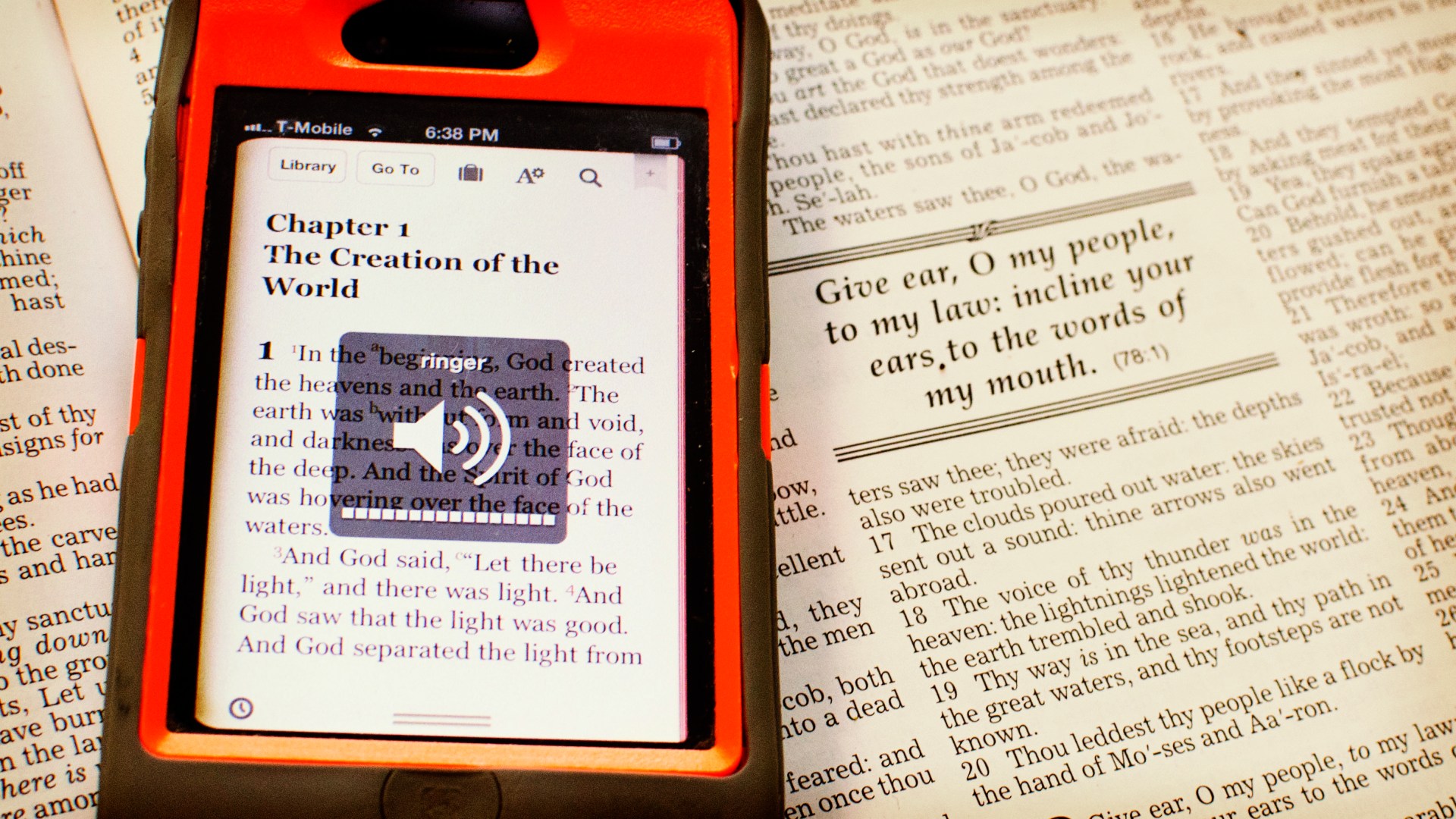The first time I heard a pastor say, “Take out your Bible or phone or iPad and turn to …” was in 2016. It seems like a fairly harmless statement, but given recent evidence that screen time is changing the way we think, perhaps not.
Approximately 2 billion people use a smartphone every day. Many of these use the device for work, scheduling, and organizing their busy lives. With punctual reminders and helpful apps, smart devices easily override our fickle attention span. Sometimes it is difficult to tell how much time one is spending on a device. In fact, one recent study showed that participants underestimated their usage by almost half.
For many, it’s believable that our attention is shorter than it used to be. In 2015, several major news sources reported that humans now have an attention span less than that of a goldfish. The study, however, wasn’t peer reviewed or a properly controlled experiment. In fact, there isn’t any solid evidence that the attention span is shrinking (or that goldfish even have an attention span).
In a recent survey, evangelical pastors and leaders claimed that the average church service should be 75 minutes. After asking preachers about their sermon length, LifeWay president Thom Rainer found that the typical evangelical sermon lasts 20-28 minutes. Should pastors worry about whether church members need even shorter sermons?
It appears, no. Thankfully, from the evidence we currently have, electronic devices (everything from smartphones to iPods) do not seem to be shrinking our attention span. Like a puppy dog in a pet supply store, we are just easily distracted.
What does seem clear is that electronic devices (especially smartphones) are addictive and can easily distract us from the very “tasks” our phones purport to simplify.
It is generally accepted by scholars that technology is changing the way we think, memorize, and focus. According to Benjamin Storm, the “internet functions as a transactive memory partner.” Storm’s study shows that the internet has impacted the way we learn and memorize information. In the study, participants were given random trivia questions and told they could answer from memory or search Google. The participants that used Google to answer an initial set of questions were more likely to use Google to answer a second set of questions. In other words, according to Storm’s study, our brains tend to offload any unnecessary extra work. Why memorize excess information, right? We no longer need to remember birthdays, phone numbers, important dates, and other factoids. All the information is just a Google search away. But this memory outsourcing comes at a cost.
Numerous studies show that smartphones and screen time are changing the way we think, but even more concerning, they are hijacking our attention. Most of us have felt that persistent, mysterious draw to check email in the middle of a conversation, look at our Facebook feed at the dinner table, or read over messages as we wait at a stoplight. While it doesn’t seem as if smart devices are any more distracting than sports, work, or hobbies, it isn’t that surprising that shiny toys are a possible danger to the spiritual life.
Dale Braswell, pastor at Wedgwood Baptist Church in Fort Worth and a former church planter in Seattle, commonly uses an iPad for his sermon notes and Scripture readings. According to Braswell, electronic devices, like many things, can be helpful or harmful. Thus, using such devices in moderation is the key.
“The dangers associated with too much screen time don't prevent me from using handheld devices in our services,” Braswell adds. “Because I think they are amoral, we can use them for good purposes.”
But if electronic devices are a hindrance to concentrating on the message, then they are a danger to the spiritual lives of believers. “Our devices are addictive,” he said. “We love the feeling we get from checking social media or a text message. [They] feed our laziness.”
Since we know that electronic devices can affect our focus and can become a place to offload our memory, exercising discipline and giving careful thought to the boundary between beneficial and harmful use of smartphones is important in the life of a Christian.
Braswell recommends that churches provide ministries to help parents and others understand the dangers of overexposure to digital media. Plus, he recommends that parents monitor their child’s screen time with devices like Circle and set limits to mobile device usage. He also suggests families or individuals could create digital-free zones, places (whether around the house or at one’s favorite park) where smart devices are not to be used.
There is nothing inherently wrong with electronic devices. The smartphone and other sundry devices are mere inert vessels that grapple with our unstable minds. Like any inordinate attachment, there are dangers that go along with it. Dangers the church must confront and battle.
But the concern should not eclipse that of other preoccupations believers face. The smartphone isn’t altogether different than the television or radio. There doesn’t appear to be any reason to fear a tech device apocalypse or that the smartphone signals our doom (at least not yet). It is simply a different medium that can be used for spiritual good or ill.
This is another occasion for the church to highlight the nature and proclivities of humanity. We can be a fickle folk, focusing more on that which is less valuable rather than that which is edifying. The key is finding beneficial and wise ways to use these nifty new devices.
Chad Meeks is Associate Pastor at Cedar Heights Baptist Church in North Little Rock and adjunct philosophy professor at Midwestern Baptist Theological Seminary.









